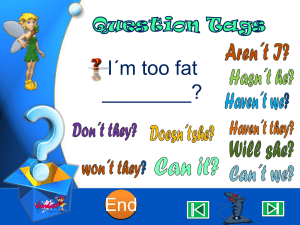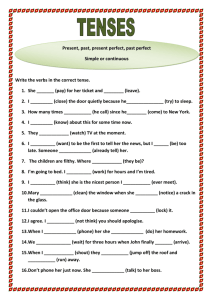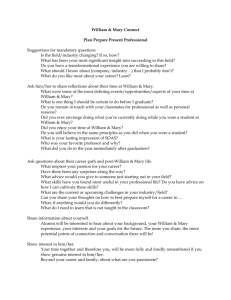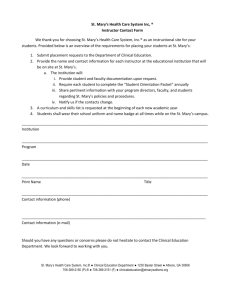Week 2 - SharpSchool
advertisement
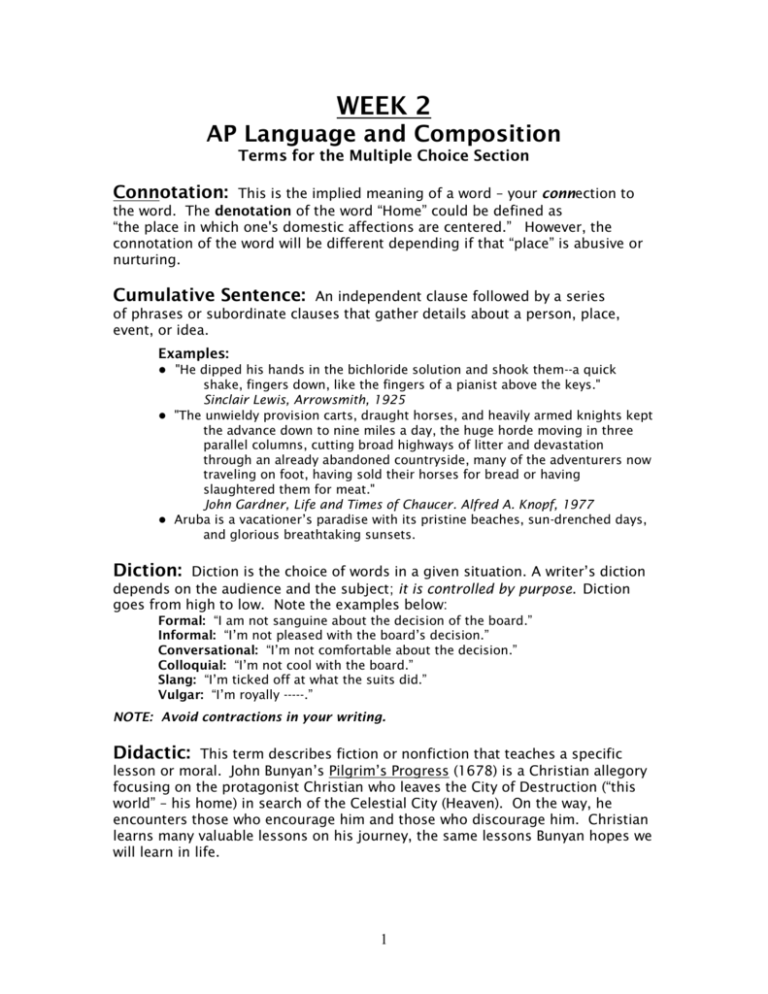
WEEK 2 AP Language and Composition Terms for the Multiple Choice Section Connotation: This is the implied meaning of a word – your connection to the word. The denotation of the word “Home” could be defined as “the place in which one's domestic affections are centered.” However, the connotation of the word will be different depending if that “place” is abusive or nurturing. Cumulative Sentence: An independent clause followed by a series of phrases or subordinate clauses that gather details about a person, place, event, or idea. Examples: ● "He dipped his hands in the bichloride solution and shook them--a quick shake, fingers down, like the fingers of a pianist above the keys." Sinclair Lewis, Arrowsmith, 1925 ● "The unwieldy provision carts, draught horses, and heavily armed knights kept the advance down to nine miles a day, the huge horde moving in three parallel columns, cutting broad highways of litter and devastation through an already abandoned countryside, many of the adventurers now traveling on foot, having sold their horses for bread or having slaughtered them for meat." John Gardner, Life and Times of Chaucer. Alfred A. Knopf, 1977 ● Aruba is a vacationer’s paradise with its pristine beaches, sun-drenched days, and glorious breathtaking sunsets. Diction: Diction is the choice of words in a given situation. A writer’s diction depends on the audience and the subject; it is controlled by purpose. Diction goes from high to low. Note the examples below: Formal: “I am not sanguine about the decision of the board.” Informal: “I’m not pleased with the board’s decision.” Conversational: “I’m not comfortable about the decision.” Colloquial: “I’m not cool with the board.” Slang: “I’m ticked off at what the suits did.” Vulgar: “I’m royally -----.” NOTE: Avoid contractions in your writing. Didactic: This term describes fiction or nonfiction that teaches a specific lesson or moral. John Bunyan’s Pilgrim’s Progress (1678) is a Christian allegory focusing on the protagonist Christian who leaves the City of Destruction (“this world” – his home) in search of the Celestial City (Heaven). On the way, he encounters those who encourage him and those who discourage him. Christian learns many valuable lessons on his journey, the same lessons Bunyan hopes we will learn in life. 1 Digression: Digression is a tactic in rhetoric. After outlining the topic and establishing the need for the audience to listen, the speaker/author digresses to a seemingly disconnected subject before returning to develop his/her theme. For example, this use of digression is still noticeable in many sermons. After the topic, the speaker will introduce a "story" that seems to be unrelated, return to the subject, and then reveal how the story illustrates the speaker's point. Dissonance (Cacophony): Language which seems harsh, rough, and unmusical. Dissonance in poetry is similar to cacophony and the opposite of euphony (language that is pleasing to the ear. “To A Locomotive Winter” by Walt Whitman employs dissonance throughout: Fierce-throated beauty! Roll through my chant with all thy lawless music, thy swinging lamps at night, Thy madly-whistled laughter, echoing, rumbling like an earthquake, rousing all, Law of thyself complete, thine own track firmly holding Ellipsis (…) The omission of words by using “…” Ellipsis (plural: ellipses); Elliptical The omission of a word or phrase necessary for a complete syntactical construction but not necessary for understanding. (1) John can play something, but I don’t know what. (2) John can play the guitar; Mary can, too. (3) John can play five instruments, and Mary can play six. In each case, the second clause can be understood as in (4)-(6). (4) John can play something, but I don’t know what John can play. (5) John can play the guitar and Mary can play the guitar, too. (6) John can play five instruments, and Mary can play six instruments. ● Tim types fast, and I do too (I type fast too). ● Mary couldn’t complete the course, but I don’t know why (he couldn’t complete the course). ● Mike has two children, and Joe has five (Joe has five children). The sentences are meaningful without the words given in brackets. These are, however, perfect only with the words in the brackets, but adding those words 2 would make the sentences rather bad looking and redundant. So, it is better to avoid them. However, the elliptical clauses are correct only in situations, where the meaning is not affected. In certain other places, they may cause confusion in meaning and those sentences should have the omitted words, or be rewritten. For instance: ● Jim played well for the tournament, and Mary couldn’t on TV. Here the sentence is complete only if we add “Mary couldn’t watch it on TV.” The above sentence has absolutely no meaning. ● Gary purchased a dress for his wife, and Tom purchased one too. Though it may be somewhat evident that Tom purchased the dress for his wife, it can also mean that Tom purchased it for Gary’s wife. More examples of elliptical constructions are here: ● Jim walked to the park, and Menaka to the school. ● Joe is very attractive, as Kathy is. ● Bob treated his teacher as exactly as he would his mother. ● Honeybees buzzed around, and so did some wasps. Epigraph: A quotation or aphorism at the beginning of a literary work suggestive of its theme. In To Kill A Mockingbird, Harper Lee incorporates a quote from Charles Lamb as her epigraph: Lawyers, I suppose, were children once. 3
